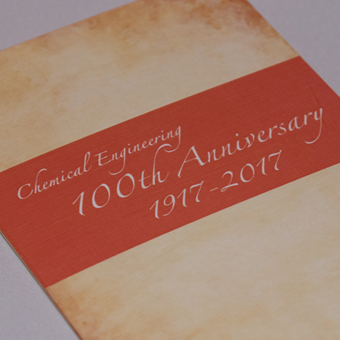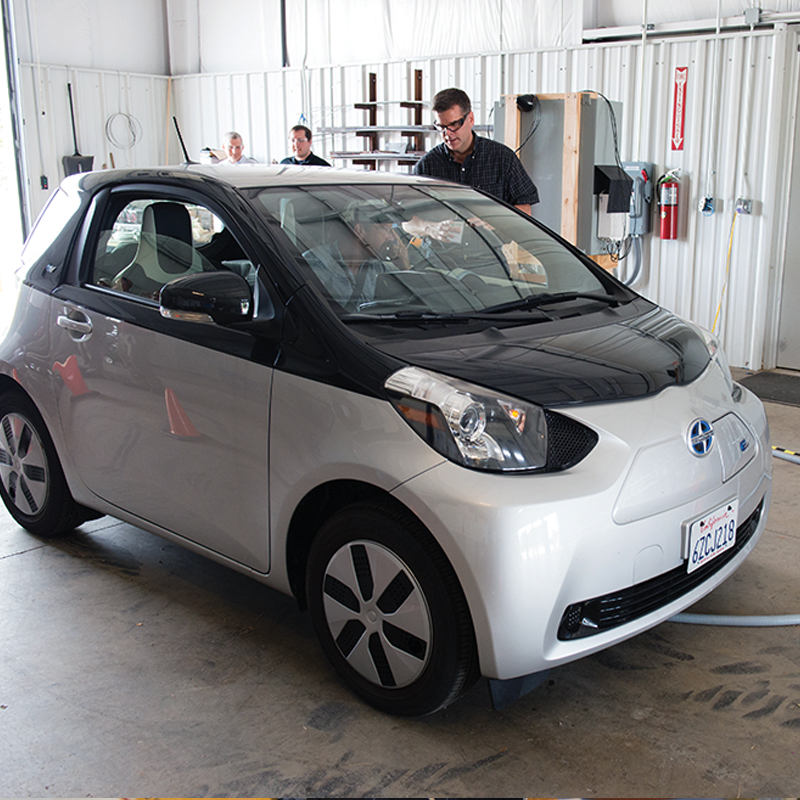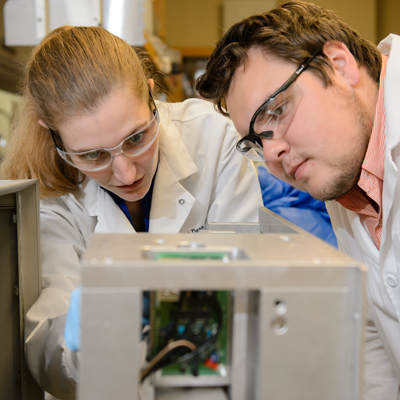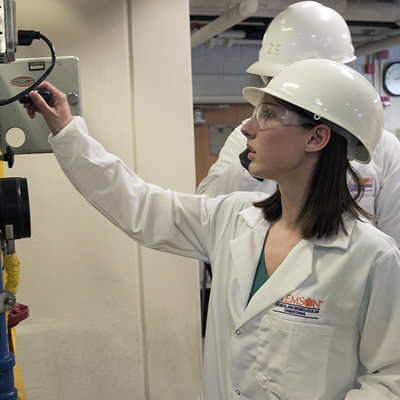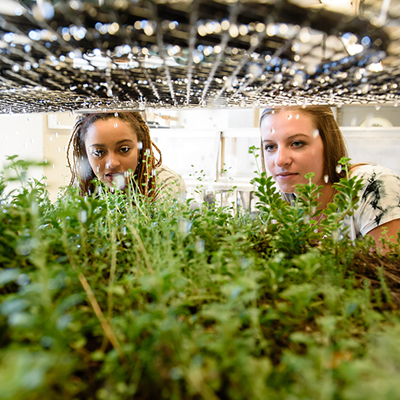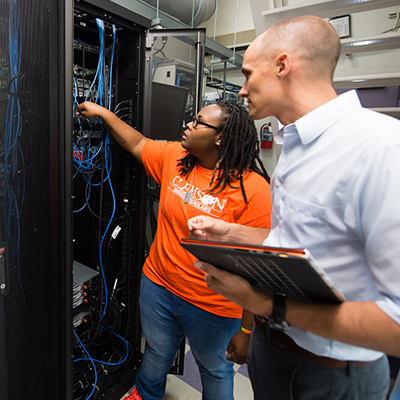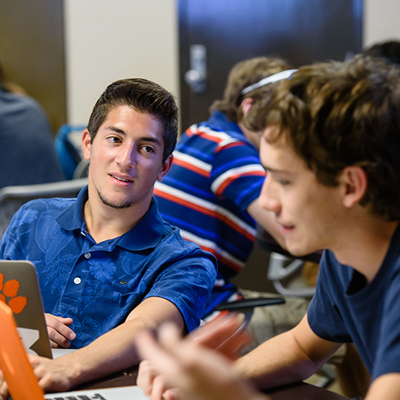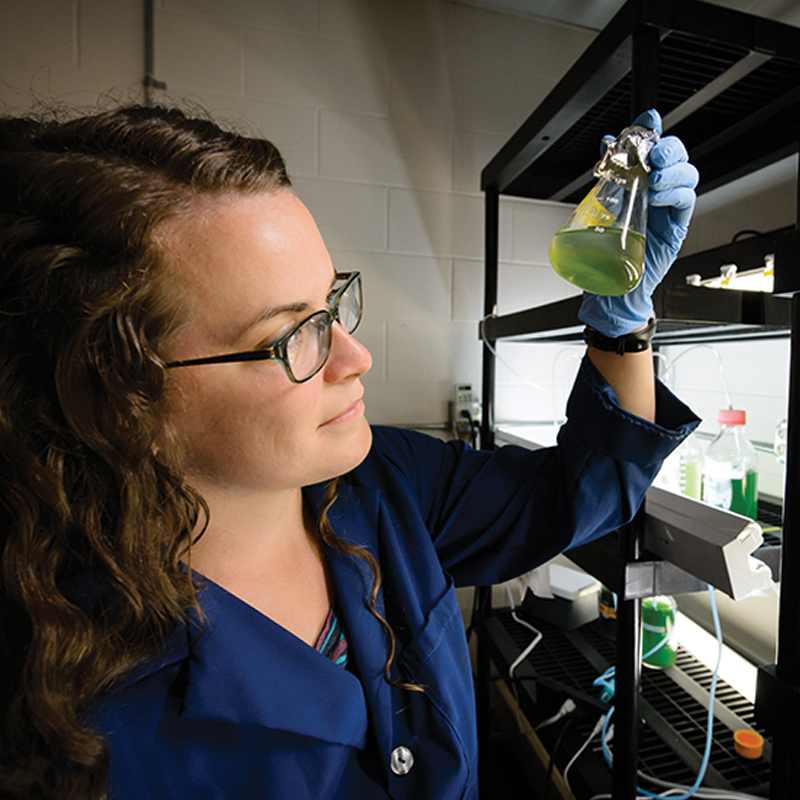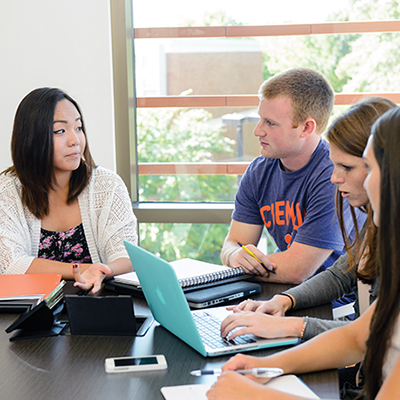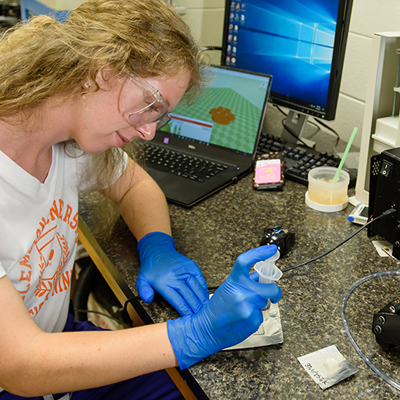More Than a Degree
Explore the research, scholarship and creative pursuits of our well-rounded students.
Alumni Spotlight
A conversation with the president and chief executive officer of Military Systems at GE Aviation.
Saving to Give
How Todd Schweisinger plans to donate $2 million toward scholarships
Faculty Spotlight
Oliver Myers
FROM THE DEAN
The College of Engineering, Computing and Applied Sciences is creating a rich environment for students to develop not only excellent technical skills, but also a broad set of abilities that position them as the intellectual leaders of tomorrow. Our world-class curriculum and experiences are built on the National Academy of Engineering’s Grand Challenges for the 21st Century and the competencies that provide the basis for our Grand Challenges Scholars Program. This foundation prepares students to tackle some of society’s most complex and urgent problems.
In this issue, we feature students who are taking advantage of the College’s opportunities and making the most of their Clemson University experience. Not only are they conducting innovative research but they are also developing leadership and entrepreneurship skills and learning the value of working across disciplines and international borders. They are helping our citizens here in South Carolina as well as our global citizens as far away as Africa.
A great example of one such student is Carson Brewer, who embedded herself in several of Tanzania’s villages to learn about their health care needs. Back at Clemson, she is now part of a student team working on a hand-cranked, portable patient monitor that doctors can use in areas without electricity. In addition to impressing her professors with her enthusiasm and ability, Carson has also found time to work as a nursing assistant on the cardiac floor of a local hospital and to play intramural sports.
As Delphine Dean, the Gregg-Graniteville Associate Professor of Bioengineering, says of her, “There are a lot of opportunities at Clemson, whether it’s in academics or outside, and Carson is a great example of a student who went out and did all the things she wanted to do and then some by looking around and keeping her eyes open.” Much the same can be said about the other students we are featuring. They are all well-positioned to become the leaders of the future. While technical skills will always be foundational for engineers and computer scientists, these students are also developing the broad spectrum of skills they will need to design and innovate for today’s complex global society.
A common thread among the students in this issue is that they are all involved in research. Many of the undergraduates, like Carson, find their projects through Creative Inquiry, an award-winning undergraduate research program unique to Clemson.
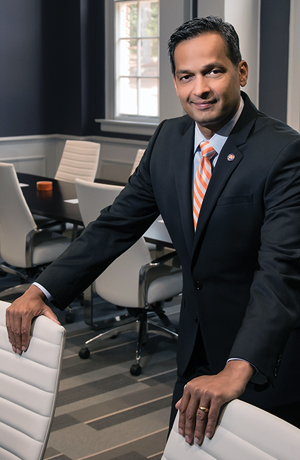
Students enrolled in courses in this program take on a project that springs from their own curiosity, a professor’s challenge or the world around them. Then they run with it, coming up with their own solutions. It’s small-group learning in a University of 20,000 students.
Aaron Gordon, whose picture is on the back cover, embodies the impact Creative Inquiry has had on our students. Before graduating with a degree in civil engineering, Aaron went to Haiti as part of Creative Inquiry’s Clemson Engineers for Developing Countries. While there, he helped provide clean water to a part of the country desperately needing it. You can see the impact this experience had on him and the community in a video at bit.ly/CleanWaterCEDC.
This issue features some of our top faculty and alumni who are donating both their time and treasure to the College. Todd Schweisinger, who is a faculty member and an alumnus, earned his Ph.D. in mechanical engineering from Clemson and chose to remain in the department as a senior lecturer. Dr. Schweisinger is now making plans to donate $2 million to the University. We also feature alumnus Tony Mathis, president and chief executive officer of GE Aviation Military Systems. Despite his many professional commitments, he makes time to serve on a number of boards at Clemson and is very supportive of the University’s efforts to encourage diversity.
This College is truly fortunate to have all these highly talented students, faculty and alumni on the same team. Each plays a key role in making the College a culturally diverse and intellectually stimulating environment — the ideal place not only to earn a degree but also to become a leader who will have an impact on the future.
Anand Gramopadhye, Dean
College of Engineering and Science
MORE THAN A DEGREE
We keep saying it because it’s true:
well-rounded citizens make better engineers and scientists.
Clemson students are distinguished in the classroom, in the lab and in the field. But academic achievement aside, it’s their personal stories that blow us away.
Making a difference in the world starts with educating students who encompass a broad range of interests and perspectives. This is how we create diverse, intellectual changemakers who are equipped with interdisciplinary and multi-faceted experiences.
New demands require new ways of thinking. Technical competence is just not enough. There needs to be a curiosity, a willingness to step outside the box when analyzing options and developing solutions.
That’s why everything we teach has meaningful application in our local community, state, nation and throughout the globe.
That’s why our students and faculty are immersed in a collaborative atmosphere of discovery that stretches across disciplines and encourages creative pursuits.
That’s why we offer countless opportunities for students to study and serve abroad, to understand the world they live in and to broaden their point of view.
That’s why every undergraduate student can join research teams led by faculty members working on a variety of socially relevant projects.
Because at the end of the day, no matter the problem, whatever the answer, we’re all working for the good of mankind.
From soccer to social justice, meet seven students surprising us in all the best ways.
TAKING A GLOBAL PERSPECTIVE
In the Heart of Africa: Carson Brewer
By Paul Alongi
One of the hallmarks of the college experience is making new friends, but not everyone gets to do it in Tanzania.
Carson Brewer is one of the fortunate few.
The bioengineering major went to the East African nation for nearly seven weeks with two other students at the end of her sophomore year, and the experience made a lasting impression.
“We actually lived in the communities,” Brewer said. “We became one of the Tanzanians and got to learn everything about them — their culture, their health care system and how we can take a step toward fixing the broken links.”
One Opportunity at a Time
Brewer, a senior, has made the most of her Clemson experience. She has traveled abroad, been heavily involved in research, played intramural sports and still found time to work as a nursing assistant on the cardiac floor at AnMed Health Medical Center.
John DesJardins said Brewer shows up early for design class, even though it starts at 8 a.m. He said he sometimes wonders, “Where do you get your energy?”
“She’s always got questions, and she’s always got ideas,” said DesJardins, the Robert B. and Susan B. Hambright Leadership Associate Professor of Bioengineering.
“She’s endlessly happy and appreciative for opportunities given and always sees the bright side of the situation.”
Developments That Make a Difference
The trip to Tanzania was part of a Creative Inquiry project led by DesJardins and Delphine Dean, the Gregg-Graniteville Associate Professor of Bioengineering.
Brewer said the Creative Inquiry program, which gets undergraduates involved in research, is the most important factor in her Clemson Experience: “That research has shaped and molded my Clemson experience. I just want everyone to have the same one I did.”
The information that Brewer and her team gathered led to the development of a portable patient monitor for doctors on medical missions. The device has a hand crank to generate its own power. It measures blood pressure, temperature and blood-oxygen level. The monitor, now on its second prototype, also includes an electrocardiogram.
Future Plans
As graduation approached, Brewer was considering whether she wanted to work for a year or go directly into medical school.
Dean said Brewer is one of those students she will remember for a long time.
“There are a lot of opportunities at Clemson, whether it’s in academics or outside academics,” Dean said. “Carson is a great example of a student who went out and did all the things she wanted to do and then some just by looking around and keeping her eyes open.” ✲
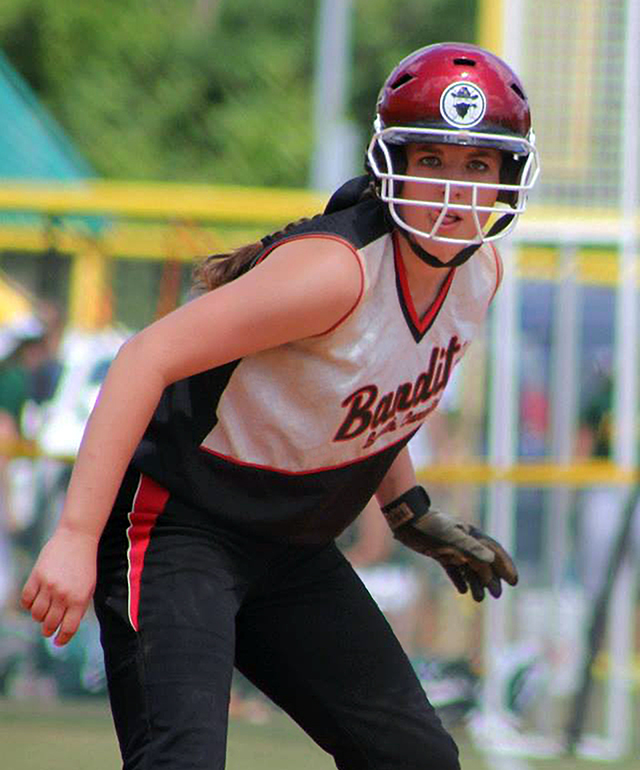
Life Before Clemson
Carson Brewer started playing competitive softball at 9 years old and learned some of her most valuable life lessons from her coaches. “They taught me to work hard. Put your head down, and do the best you can. At the end of the day, it’s all on your shoulders. You control your destiny. When you get knocked down, get back up.”
Brewer played volleyball, basketball and softball at Walhalla High School, varsity lettering in all three beginning with her freshman year. She had offers to play collegiate softball but chose Clemson after working with Delphine Dean and John DesJardins as part of Project Lead The Way. ✲
Unexpected Friendship
When Brewer reflected on her time in Tanzania, one person stuck out in her mind. She described him as a young man named Weston, who helped her — and the other students — bridge the language barrier.
“One evening, he brought the three of us over to his home and cooked a homemade dinner for us and welcomed us in to meet his family, his kids,” Brewer recalled. “That was such a rewarding feeling. This guy knew nothing about us, other than that we’re just three Clemson kids coming to try to save the world, and he opened his door to us and took us as his own.”
MORE THAN A DEGREE: Collin Braeuning
LEADING THE DEN
When Passion Is Contagious: Collin Braeuning
By Paul Alongi
Collin Braeuning went to his first meeting of The DEN for the free sub sandwiches and chicken tenders when he was a freshman. He stayed for the passion he found there and now, two years later, serves as the program’s student leader.
“These people were just so excited about the products and the companies they had made, and I wanted to be part of that,” he said.
The DEN gives students a chance to share ideas for products and businesses and to form teams to develop those ideas. They receive instant feedback from professionals, faculty members and student peers in weekly meetings.
Breaking Stereotypes
Braeuning, a junior from North Charleston, spends a lot of his time planning meetings, setting up outreach events, and looking for CEOs and other business leaders to speak to students.
It’s one example of how the computer engineering major has set aside his own business and device ideas to support the work of others.
“I’m sure you know the stereotype that engineers aren’t good with people,” Braeuning said. “But I feel like if you have the technical knowledge and the communication, business and entrepreneurship skills, that’s way more valuable than someone who would just sit behind a computer and program all day.”
Enter the Makerspace
Braeuning is dreaming big. One of his largest projects is a proposal to turn a soon-to-be-vacated bookstore into makerspace that would be packed with equipment, such as 3D printers and laser cutters, that students could use to create new things.
It’s part of Creative Inquiry, an undergraduate research program, and is packaged as the Network for Innovation and Marketable Skills.
Braeuning, the network’s lead, has begun researching how much money and square footage Top-20 universities are dedicating to makerspace. Clemson has about 600 square feet of centralized makerspace, but expanding it to be more competitive would support several University initiatives, including the ClemsonForward strategic plan, he said.
“We see this as something the University would hopefully like to invest in and provide for its students,” Braeuning said. “Employers like to see undergraduate students coming out with experience. Laser cutting, woodworking and metalworking — that’s something that can set us apart from other schools, especially in South Carolina.”
A website he is creating summarizes the makerspace options already available to students across campus.
Learning to Lead
Bre Przestrzelski, the co-founder of The DEN and its first student lead, worked with Braeuning when he was just starting out in the program. It was easier than she thought to turn over the reins to him when she graduated last spring with her Ph.D. in bioengineering.
“That’s all to Collin’s credit,” said Przestrzelski, who is now a postdoctoral researcher at the University of San Diego. “He was somebody who took the time while I was still there to shadow me, to be mentored by me.”
“The DEN” is the commonly used shorthand for The Design and Entrepreneurship Network. The DEN describes itself as “a platform where students and their ideas come to grow, with assistance and organic intergenerational mentoring from stakeholders in the community and campus ecosystem.”
Braeuning is also a University Innovation Fellow. He and four other students went to Stanford University for several days to learn how to encourage innovation, entrepreneurship, design thinking and creativity on campus.
He was a natural fit for the program, said John DesJardins, the Robert B. and Susan B. Hambright Leadership Associate Professor of Bioengineering.
“Collin’s just been one who takes every opportunity in engineering and entrepreneurship,” DesJardins said. “He has really enjoyed the process of becoming a leader of his peers in that domain and is always firing on all cylinders.” ✲
MORE THAN A DEGREE: Devin Keck
CREATING SPACE FOR STEAM
A Passion for STEAM Education: Devin Keck
By Paul Alongi
Devin Keck is pursuing a Ph.D. in mechanical engineering, but he also finds time to do some good outside the lab. The Charleston native is part of a team working to turn the recently closed Holly Springs Elementary School into a fully functioning community center.
Keck’s role is to transform part of the center into a STEAM Lab, where K-12 students would sharpen their skills in science, technology, engineering, arts and math.
It’s an all-volunteer effort that is just gearing up under the name The Holly Springs Center. They have a solid start that includes a preschool and courses that range from photography to silversmithing.
The team also held a STEAM summer program and has begun to develop a vision for the STEAM Lab.
“They would bus students to our community center, and we would run an all-day STEAM program,” Keck said.
It’s part of Creative Inquiry, an undergraduate research program, and is packaged as the Network for Innovation and Marketable Skills.
Braeuning, the network’s lead, has begun researching how much money and square footage Top-20 universities are dedicating to makerspace. Clemson has about 600 square feet of centralized makerspace, but expanding it to be more competitive would support several University initiatives, including the ClemsonForward strategic plan, he said.
Cross-Disciplinary Collaboration
Keck began working on the center after meeting Abby Baker at a STEAM networking event. Baker, who serves as center director, is an alumnus of the elementary school and is now pursuing her Ph.D. in learning sciences at Clemson.
Their different areas of expertise — his in engineering and hers in education — complement each other, she said.
“To me, it’s really encouraging that there is someone else my age who is working to make a difference,” Baker said. “It’s really refreshing that I’ve found Devin.”
Research Advancements
In addition to service learning, Keck’s Ph.D. studies keep his schedule packed with research and teaching responsibilities.
He has access to a bacteria that extrudes a single fiber, and he’s working to control the bacteria with electricity and light. Results could lead to a 3D printer with a resolution much smaller than anything currently available.
“Right now, people use plastics, and you have to deal with the nozzles to generate the right diameter,” he said. “But we’re using the bacteria to extrude our material, so our fibers are much, much smaller. You could make components that are smaller than anything that could be made right now.”
“In the far future, the possibilities are endless. We have an entire school of empty classrooms. Ideally, it’s an opportunity to turn a closed-down school into something good for the Pickens community.”
Driven to Serve
Keck was a still an undergraduate when his now-adviser, Rodrigo Martinez-Duarte, selected him for an assistantship that required some knowledge of biology.
Martinez-Duarte recalled, “Devin was very pro-active in taking biology and microbiology classes. He has the enthusiasm and the practicality. He also comes across as a person who solves problems.”
While Martinez-Duarte pushes his Ph.D. students to get their work done, he also tells them they need to have a work-life balance.
“A lot of my eureka moments came when I was not in the lab,” he said. “Sometimes when you’re always in the lab, you get focused on one single thing, and you get into a vicious cycle. A lot of the solutions come when you go and get exposed to something else.” ✲
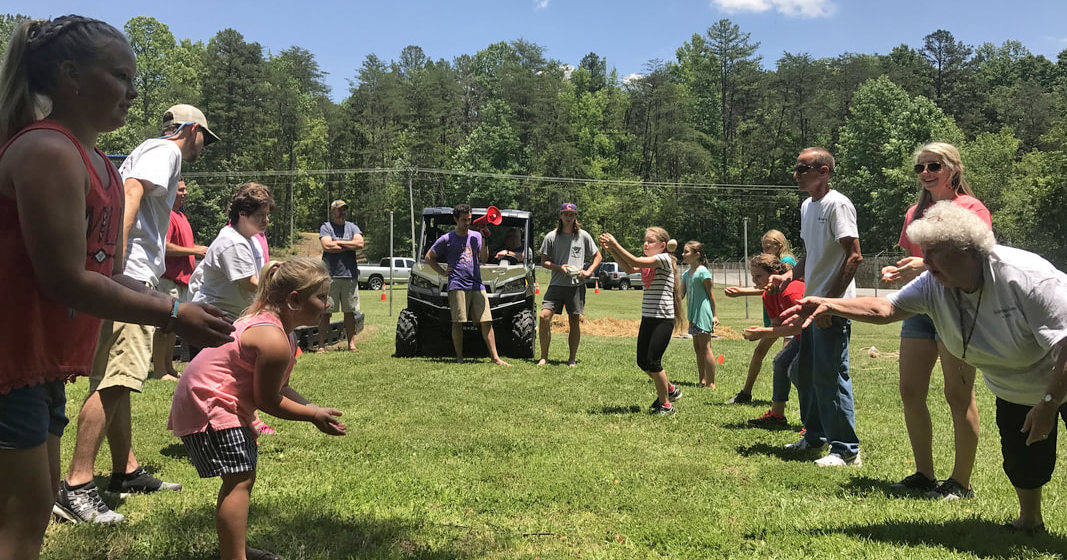
Making Engineering Fun
The Holly Springs Center grand opening was far from conventional: “It wasn’t just about engineering. We were playing tug-of-war. We hid pennies in a haystack and had duck races down a little river. I like having the opportunity to work with children.”
MORE THAN A DEGREE: James Righter
CHANGING CAREER PATHS
From Lt. Col. to Ph.D. – James Righter
By Paul Alongi
James Righter had a 20-year career in the Marines before retiring as a lieutenant colonel. When it was all over, he packed up in Quantico, Virginia, and headed south for Clemson University, where he is now a Ph.D. student in mechanical engineering.
He has deep experience that is rare for a student, even at the doctoral level. Military service took Righter all over the world, including tours in Iraq, Japan and Parris Island.
“I got to work with some of the best people in America, some of the best people in the world,” he said.
Higher Education Logistics
Righter began his Ph.D. program in August 2015, just a few weeks after retiring. He now lives in Clemson with his wife, Gretchen, and their two sons, James (12) and Jacob (8). Righter hopes to finish his program in August 2018 and then find a faculty job.
His adviser, Joshua Summers, said Righter would make a good faculty member.
“He has a love for the students, a passion for teaching,” said Summers, the mechanical engineering graduate program coordinator. “He is very conscientious and very intentional when he works on explaining things. When he speaks, people listen.”
Righter led logistics teams that helped ensure the Marines had what they needed, including transportation, supplies, maintenance, health services and engineering. He had to coordinate with lots of people inside the Marine Corps and with outside agencies, such as USAID.
“I really enjoyed that,” Righter said. “That’s part of what brought me back to grad school, and that’s what led me into the research I’m doing.”
The research is interdisciplinary, focusing on leadership in design teams. Some of the key questions he asks include, “What do leaders do, what can leaders do better, and how can we better educate them to do those things?”
Righter is able to draw from his logistics experience.
“Logistics teams solve problems with Marine units,” he said. “You take resources, you match them to requirements, and you come up with a design to fix that. That’s what design teams do. It’s just mechanical products, instead of service products.”
“Clemson had this broader, more interdisciplinary feel to its research program than some of the other places I looked. But in the end you just pick up the phone, and you talk to people. Who are the people you want to work with? It was the community and the people as much as anything else that brought us here.”
In addition to his dissertation research, Righter is part of a project team sponsored by BMW that is planning to use an electroencephalogram to see if they can measure how engaged people are while performing assembly operations. “You’re trying to figure out, is this something they can do very easily? Or is this something that is very complicated and challenging and frustrating for them?”
A Family Affair
His parents, Richard and Jessica Righter, both Marines, were his biggest influence: “They’re the ones who develop you from the very start and teach you what your ethics are and give you a foundation of values. You learn about faith from them. You learn how to treat people. I really respect my parents and that foundation they gave us.”
Righter said his family keeps him busy when he isn’t in the classroom or lab. They enjoy going to football games and swim meets. Righter said he also likes to run local races “really slowly.”
The transition from lieutenant colonel to Ph.D. student has been a happy one.
“This is busy, but this is fun busy,” Righter said. “You’re always home on the weekends, unless there’s a conference. You’re always in your own bed at night. These are all good, positive things. You always want more time with your family — everyone would say that. But this has been a great time to get back with the kids.” ✲
MORE THAN A DEGREE: Julia Brisbane
FINDING A FIT IN ORTHOPEDICS
Igniting a Spark: Julia Brisbane
by Hannah Davis
Before bioengineering at Clemson, Julia Brisbane studied piano for 12 years at a magnet school for the arts in Charleston, S.C.
Math and science classes were not her top priority then, but attending an EMAG!NE event changed everything. EMAG!NE — a program offered by the College of Engineering, Computing and Applied Sciences — inspires K-12 students across the state to see the impact they can make on society in STEM careers. Participants work closely with Clemson faculty and students to test their abilities, find solutions to problems, and learn what next steps they can take to prepare for college and a major in engineering.
Brisbane first saw bioengineering as her path to becoming a surgeon. Then she dove into the biomaterials concentration and discovered other ways to make a difference.
“Bioengineers give people new life through orthopedic developments,” Brisbane said. “My long-term goal is to earn a Ph.D. and further advance research and education efforts in this area.”
Finding a Support System
The transition from high school to college wasn’t always easy, but she credits the RISE (Residents in Science and Engineering) Living-Learning Community with connecting her to students with similar aspirations who became her closest friends.
Now Brisbane is thriving as a National Academy of Engineering Grand Challenge Scholar, which she considers one of her primary undergraduate accomplishments: “My focus is engineering better medicines. I’ve completed four out of the five components, and right now I’m primarily working on research.”
Brisbane’s passion for research ignited the summer before her freshman year officially began. She was on campus for the FIRE program, which is aimed at giving underrepresented engineering and science students a head start on math, research and campus life.
During those two weeks, she learned about the support systems available through PEER (Programs for Educational Enrichment and Retention) and WISE (Women in Science and Engineering).
“PEER/WISE workshops made me think beyond just earning good grades, and about graduate school and summer research experiences,” Brisbane said.
Advanced Research
FIRE is also where she met associate professor Melinda Harman, who helms the laboratory for Retrieval Research and Reprocessing of Medical Devices. Harman asked Brisbane to join her Creative Inquiry team — Clemson University Retrieval of Explants Program and Registry in Orthopaedics — and quickly became a valued mentor.
While collaborating with Harman, Brisbane decided she was most interested in biomechanics, or how internal and external forces act on the body during human movement. Her most recent investigation, for example, focused on a device that analyzes the anatomy of a femur.
“We’re working with orthopedic surgical teams to collect and process explanted medical devices,” she explained. “This allows us to develop tools and techniques for systematic evaluation of implant designs, biomaterials and function.”
For three semesters, Brisbane belonged to another Creative Inquiry project called Clemson Engineers for Developing Countries. As a member of the medical equipment team, she collaborated with a hospital in Haiti to determine its medical device needs.
“Most of their equipment came from older hospitals, and they didn’t know how to use it,” Brisbane said. “We created a medical equipment manual database and even worked on developing an app.”
Stepping up to Inspire
Brisbane hopes to challenge other minority females to pursue engineering fields.
“There might not be many people who look like me in my degree program,” she said. “But everyone is rooting for you here, and all the resources that are available mean you’re never alone.” ✲
Clemson connected Brisbane with professional bioengineers at the Medical University of South Carolina. She landed an internship in the cardiac research division, and then returned to the physical therapy research lab for an undergraduate summer research program.
MORE THAN A DEGREE: Jake Flynn
PLAYING TO WIN
Striking a Balance: Jake Flynn
By Ron Grant
Jake Flynn’s dad was an All-American striker at Appalachian State, so soccer is part of his DNA. Being a member of Clemson University’s men’s club soccer team provides a much-needed outlet from his class work and research projects as a senior industrial engineering major.
Flynn believes that being healthy, exercising and having fun contributes to a work-life balance that fosters educational and career success. It seems to be working.
Aircraft Breakthroughs
His performance in ergonomics class caught the eye of Sara Riggs, an assistant professor in industrial engineering. She invited Flynn to become a member of her lab team. They’re currently investigating unmanned aerial vehicles (UAV).
“Right now, the Army and Air Force employ three pilots to one UAV,” says Flynn. “Dr. Riggs is looking for a way to flip and improve that ratio. The goal is eventually to have individuals controlling multiple machines.”
Beyond the Lab
Flynn has taken the opportunity to apply his classroom knowledge to real-world situations through Clemson’s Cooperative Education Program.
“At first I wasn’t interested in co-oping, but then I met Jeff Neal, Clemson’s co-op director,” Flynn says. “He transformed my entire Clemson career by giving me the confidence to consider working for the premier companies of the Fortune 500.”
His enthusiasm for cooperative education led him to become an ambassador for the program. The advantage to co-oping? According to Flynn, “You graduate with a year of experience, and you get an extra football season. What’s not to like?”
Why IE?
After completing general engineering, Flynn needed to choose a discipline. A 30-minute conversation with Cole Smith, the department chair of industrial engineering, turned into an hour and a half: “Dr. Smith went out of his way to help me understand the career potential of an industrial engineering degree, and he made a clear case for why the program here offers some of the best opportunities in the country.”
Teamwork Makes the Dream Work
Flynn is also a lead tutor with Student Athletic Academic Services. In addition to being a tutor himself, he supervises the efforts of some 22 other math tutors who are working with Clemson student-athletes.
“Jake is an outstanding student in both the classroom and the lab,” says Cole Smith, the industrial engineering department chair. “What makes him special, though, is his commitment to the department. As an IE ambassador, he meets with prospective students and shares his perceptions and experiences. His enthusiasm and excitement are contagious.”
While graduation is inching closer, the senior from Mooresville, North Carolina, says he doesn’t want to leave. “Many have tried to define the Clemson Experience, but it’s something that is difficult to put into words — it has to be lived,” Flynn says. “To me it’s Southern hospitality combined with a group of people who care for and love each other to the point that your classmate’s success becomes as important as your own.” ✲
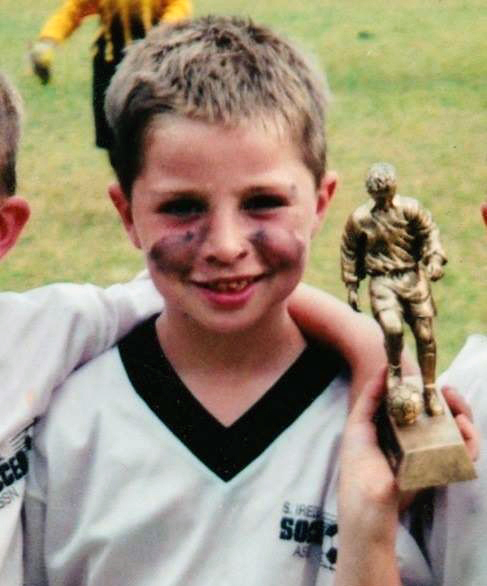
Family Ties
Flynn’s parents, Brian and Kristin, are his biggest influences: “Dad showed me that drive and commitment pay off on the playing field and in the boardroom. Mom taught me to strive for perfection. She has never let me forget that as an elementary student I misspelled ‘spelling’ on my spelling folder.”
When it came to choosing Clemson, mom and dad were right by his side. “My first trip to campus was an ‘elimination visit.’ After our tour, I told my dad that deciding where to go to college just got a lot harder. I came back with my mom later, and that’s when I knew that coming here was the right thing for me. I’ve never regretted that decision — not for a minute.”
MORE THAN A DEGREE: Madison Maddox
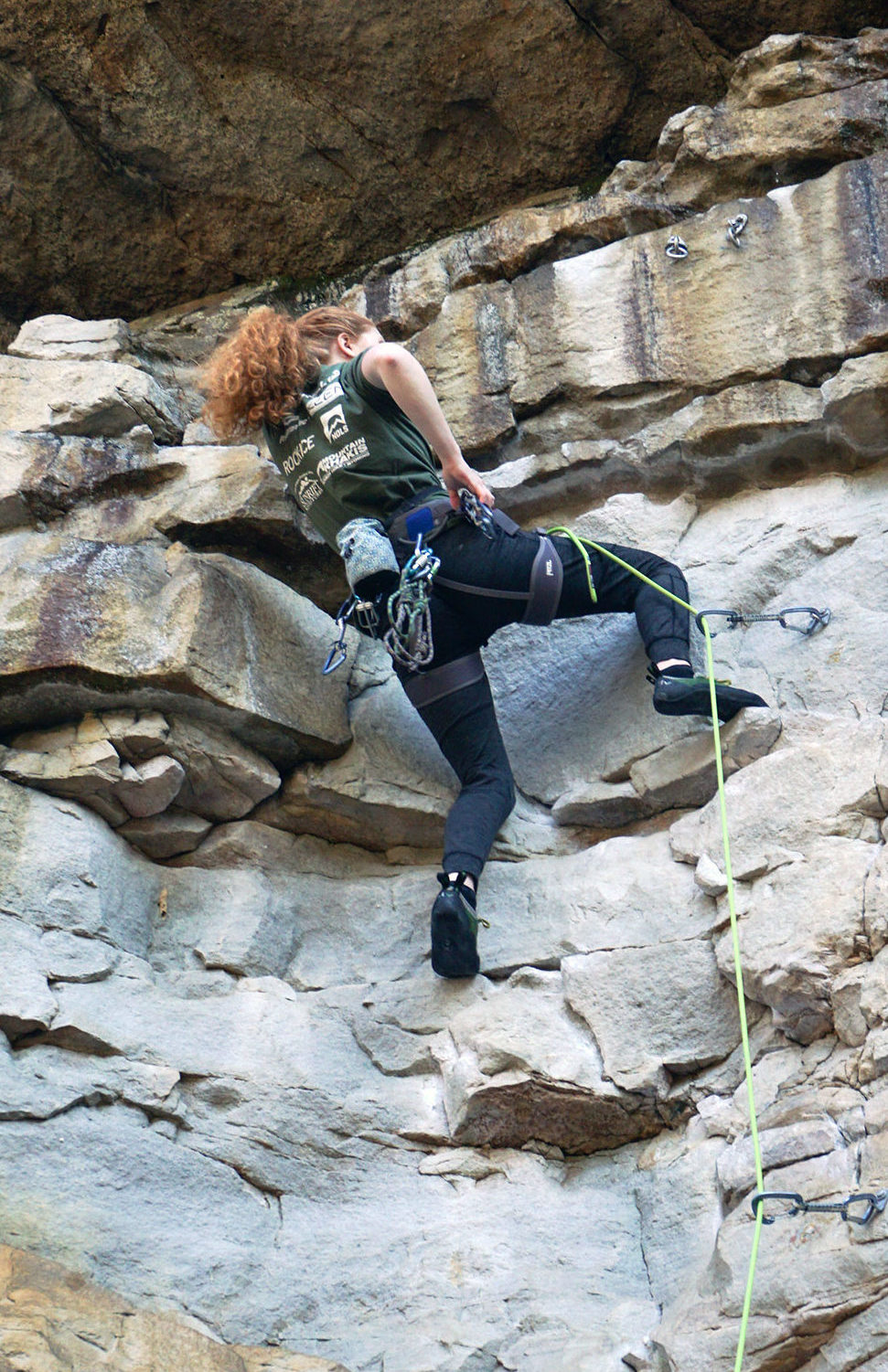
CLIMBING AND CODING
Madison Maddox: Up for a Challenge
by Hannah Davis
Madison Maddox thrives on caffeine, late-night brainstorming sessions, and the triumphant moments when hard-fought goals are achieved. The junior computer science major and Calhoun Honors College student from Beaufort, S.C., says her biggest challenge is time management while navigating a schedule packed with academic and extracurricular activities. But if these are the best four years of her life, she’s going to make the most of every second.
A Once-in-a-lifetime Adventure
As a University Innovation Fellow (UIF) — an international program of the Stanford d.school — Maddox was charged with leading change in higher education. Six weeks of training culminated in a trip to Silicon Valley, where she met fellows from around the world and heard presentations from trailblazing companies such as Microsoft and Google.
“Seeing other schools with the same passion for progress but at different levels of the process was really inspiring,” Maddox said. “That experience is what keeps me motivated to be so active on campus.”
The enthusiastic support from University stakeholders (she named Dean Anand Gramopadhye, John Desjardin, Student Affairs and the Calhoun Honors College) is crucial to the success of UIF at Clemson. During the California trip, Gramopadhye organized an alumni meet-up that left a lasting impression on Maddox.
“Clemson places a strong emphasis on cross-disciplinary education that has shaped the way I learn,” she said. “The opportunity to take courses outside core curricula, to start new initiatives, to have conversations with mentors who are eager to share from their own experiences? It’s all critical to our future success.”
Got an Idea?
Maddox is also in the leadership circle of the Design and Entrepreneurship Network, more commonly known as the DEN. The DEN offers a semester-long course which provides students with the mentors and resources to bring their ideas to fruition.
Maddox says it’s the passion DEN members have for their work that continues to draw her in and not just the projects themselves: “You don’t have to be successful in your endeavor to be considered productive. Failure is often the best way to learn.”
Bringing VR to CU
Maddox is minoring in digital production arts and that interest comes into play in her role as an officer of the Virtual Reality Club. In October of 2017, the Virtual Reality Club opened the Immersive Space in the Watt Family Innovation Center, which serves as a hub for students and faculty interested in experimenting with virtual reality and augmented reality headsets, software and desktops.
“We want to make the incredible technology we have here as accessible as possible,” she explains. “There’s always staff present who can teach you about development or help you get further involved.”
The Mountains are Calling
When she’s not coding, Maddox is climbing. She’s vice president of the Climbing Club, one of Clemson’s club sports that meets once a week for an open practice, usually followed by pizza at Todaro’s dollar slice night. Representing the Tigers at the national collegiate climbing competition in San Diego ranks among her most epic accomplishments.
“It’s about pushing myself outside my comfort zone by learning a sport and then taking it to the next level,” said Maddox. “I love climbing outdoors, so Clemson’s location and proximity to the mountains is ideal.”

“I love the problem-solving aspect of computer science. In my world, code is a tool to solve problems.”
What’s Next
Long-term aspirations?
Right now, Maddox is interested in the field of software consulting. She landed an upcoming summer internship with Deloitte Consulting LLP in the federal technology consulting department, and hopes to confirm her career path while still exploring all the opportunities her degree program — and Clemson — can offer.
“Finding a balance between academics and campus life changed everything,” she reflects. “I believe the best mindset to have if you’re not sure you’ll like something, is to at least give it a try.” ✲
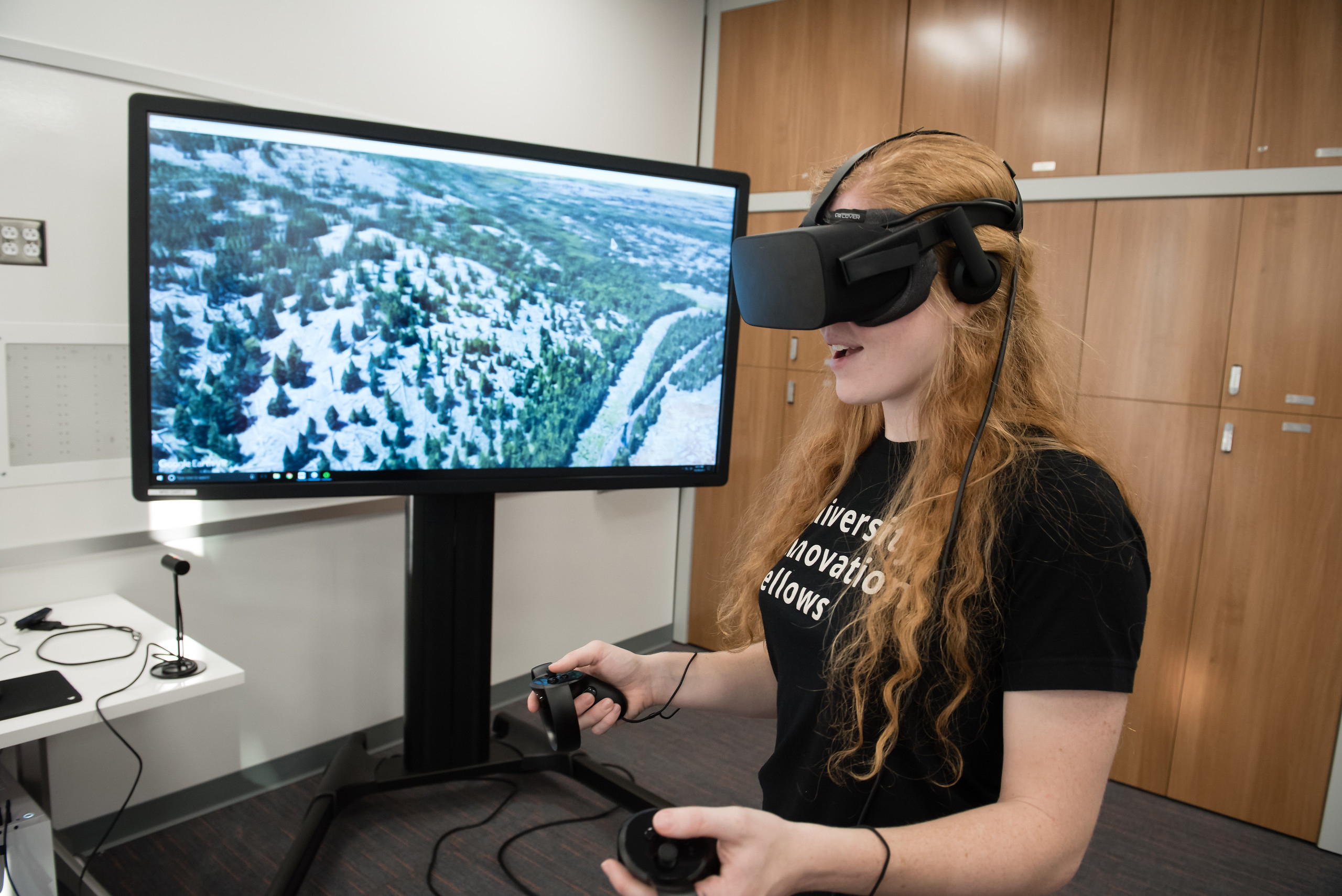
Marketable Skills
The UIF program goes hand in hand with the Network for Innovation and Marketable Skills (NIMS), one of Maddox’s two Creative Inquiry teams. NIMS participants are working toward three objectives: unifying the making resources on campus; creating a network for similar organizations; and acquiring a physical collaborative space. The result will give every Clemson student easy access to shared resources ranging from the Makerspace to the Immersive Space to all the different departmental machine and woodworking shops.
Alumni Spotlight
Tony Mathis helps Clemson University
SOAR TO NEW HEIGHTS
GE Aviation Military Systems makes jet engines for the U.S. Department of Defense and its allies all over the world. It’s a growing $4.2-billion-a-year business, and Clemson University alumnus Tony Mathis oversees the whole operation as its president and chief executive officer.
Mathis is one of Clemson’s most engaged alumni. He serves on the board for the Clemson University Foundation, has helped establish two endowments and manages the executive relationship between General Electric (GE) and the University.
Mathis, an IPTAY member, recently moved from Seattle to Cincinnati, allowing him to attend more Clemson football games. But even when nearly an entire continent separated him from his alma mater, Mathis made time to return to campus.
“Clemson is, has been, and always will be a priority,” Mathis said. “If you make something a priority, you will do it. What I do with Clemson and GE is built on mutual value. We are providing tons of value to the University, but the University is also providing tons of value to the General Electric Company.”
Mathis is highly supportive of Clemson’s efforts to encourage diversity. He worked with Clemson Chief Diversity Officer Lee Gill to support the formation of the Tiger Alliance, an initiative targeting African-American and Hispanic high school students. He is also working with former trustee and alumnus James E. Bostic Jr. to provide financial support for diverse students in the Calhoun Honors College.
“What that is going to do is help the diversity of the University, and in turn create more diverse candidate slates for GE, as well as others,” he said. “That’s one thing that’s important to us — to be able to come on campus and interview diverse talent. The best talent, but also diverse.”
Mathis graduated Clemson with a degree in mechanical engineering in 1986 and went on to receive a master’s degree in mechanical engineering from California State University, Fresno and an MBA from Xavier University.
He served as 2nd lieutenant in the U.S. Air Force, where he focused on flight test and propulsion project engineering. In 1997 he joined GE Aviation and has held roles of increasing responsibility.
Mathis said he liked everything about Clemson from the first time he set foot on campus for a science and math camp when he was a high school student from Atlanta, Georgia.
“It was like love at first sight between me and Clemson,” he said.
An important part of Mathis’ life and development is his membership in the Chi Zeta Chapter of Omega Psi Phi, Inc. He joined the fraternity in 1983 and went on to lead the establishment of two diversity endowments, which were announced in 2014.
One was named the Chi Zeta Chapter Diversity Endowment, and the other is in the name of William C. Clinkscales Sr., a chapter advisor who served as assistant director of state operations for Clemson Extension.
Mathis also leads the engagement and recruiting efforts between Clemson and GE. The relationship helps connect graduates with potential job opportunities. It also gave Clemson the chance to become one of four universities to take part in a consortium focused on ceramic matrix composites, which are crucial to the next generation of jet engines.
Raj Bordia, chair of Clemson’s Department of Materials Science and Engineering, worked with Mathis on the consortium.
“Tony has been behind us 100 percent and has introduced us to the right people,” Bordia said. “He’s a gentleman and has followed through on everything he has promised to do.”
Mathis is on the Clemson University Foundation Board of Directors, serving as chairman of the nominating committee. The foundation seeks financial support for the University through various fundraising programs.
Anand Gramopadhye, dean of the College of Engineering, Computing and Applied Sciences, said that Mathis works tirelessly for Clemson.
“He plays an integral role in widening the pipeline from Clemson to industry and ensuring that the talent flowing through that pipeline is diverse,” Gramopadhye said. “I have deep gratitude for all that Tony does for the college and the University.”
For Mathis, it’s all about paying forward the help he received when he was a student.
“I just think Clemson is special,” he said. “The best four years of my life were spent here, and it has meant so much to me and my family in my development, in my career and in my personal growth.
“It was all a function of other people helping me. I just know other Tony Mathises out there need somebody helping them to realize their dreams and potential. I love the University, and I love the football. But I go back because it takes people helping others to succeed.” ✲
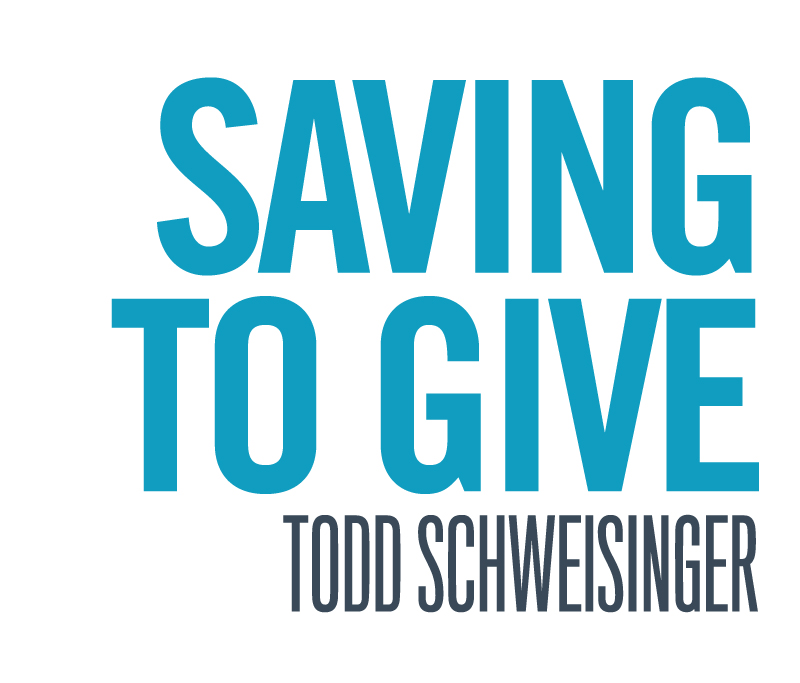
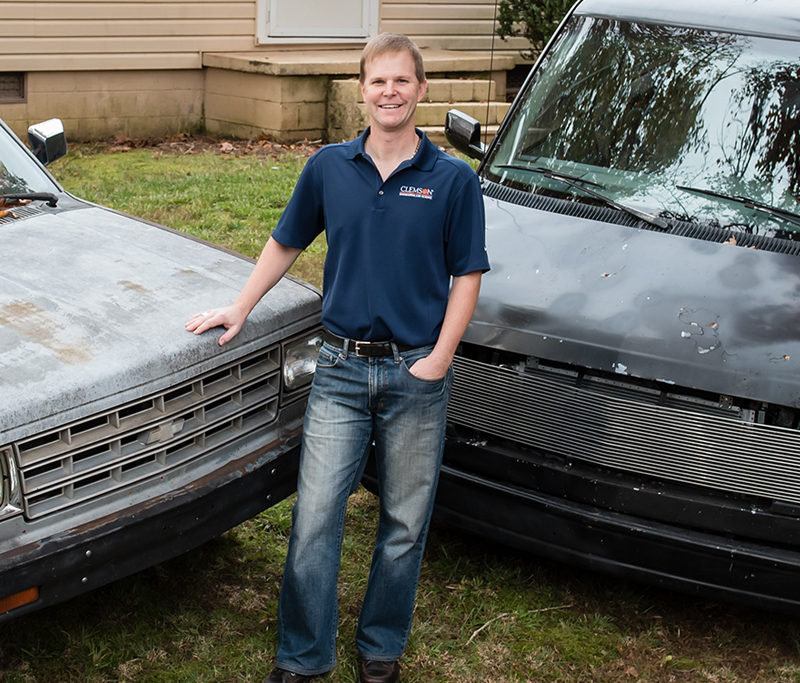
Senior lecturer plans to donate $2 million for scholarships
Todd Schweisinger still lives in the house he bought for $60,000 when he was a Ph.D. student and drives the same 1988 minivan he’s had since he was a teen.
It’s not that Schweisinger can’t afford a bigger house or a newer car. He makes a comfortable salary at Clemson University as a senior lecturer in mechanical engineering and undergraduate lab coordinator.
Schweisinger shuns luxuries because they aren’t in line with his life goals. He has bigger plans, and donating $2 million to Clemson is at the top of his list.
Donors across the country will be deciding how to direct their charitable dollars this year, but few will be able to top Schweisinger in ambition and sacrifice.
Schweisinger, 42, has pledged 95 percent of his estate to the University to establish an endowment that will fund scholarships for students. He doesn’t have the full $2 million yet, but he’s working on it by saving and investing in real estate.
“I feel like I’m living the dream,” Schweisinger said. “I have my health. I have my happiness, and I have financial independence. I worried about money for a long time, and I don’t worry about money anymore. That’s really liberating.”
Schweisinger moved to Clemson for graduate school in 1997 after graduating from the University of California-Irvine with a bachelor’s degree in physics. He now has a master’s degree and a Ph.D., both in mechanical engineering from Clemson.
In those early days at Clemson, Schweisinger had to take out student loans to pay tuition and other expenses. He later secured some assistantships and was able to wean himself off the loans.
But just as he did, Schweisinger was diagnosed with Type I diabetes. Insurance premiums alone cost him $500 a month, which was about half his earnings at the time, he said.
Schweisinger had to go back to the student loans.
“I ended up borrowing about $80,000 by the time I graduated, which is all paid off now,” he said. “It was easy for me to do because once I graduated, rather than getting these things everyone else was buying, I said, ‘I’m going to live like a graduate student.’”
The van isn’t Schweisinger’s only vehicle. As a backup, he keeps a 1982 pickup that he originally bought to haul his kayak to the mountains.
A new car, he said, just doesn’t line up with his life goals.
“Let’s say I go out and buy a new luxury car,” Schweisinger said. “That car is just going to devalue over time, and insurance payments are going to go up. Maintenance costs are going to go up. I don’t know much about working on all the electronics.”
Schweisinger stuck around at Clemson after getting his Ph.D. in 2007 because Imtiaz Haque, who was then department chair in mechanical engineering, offered him a job as undergraduate lab coordinator.
“I was like, ‘I totally need to eat — this is great,’” he recalled.
A semester later, a job opened up when a lecturer left the University. The lecturer job and the coordinator job were merged, and that’s what Schweisinger has been doing ever since.
Schweisinger, who is unmarried and has no children, has maintained his frugal lifestyle, always asking himself whether purchases are in line with his long-term life goals.
His number one goal is creating an endowment that will fund at least one scholarship in perpetuity. If the money invested returns about 3 percent, he figures the endowment needs to be about $1 million to provide an annual scholarship that pays tuition and other expenses.
Schweisinger has set his sights on contributing $1 million before he dies and leaving another $1 million as a bequest. He has been doing estate planning with Jovanna King, principal gifts senior director in Clemson’s Office of Development.
“I’ve given her my will and testament that says 95 percent of my estate would go to Clemson, and they are beneficiaries of everything I have,” Schweisinger said.
King said that Schweisinger truly understands about giving back, not only in time but resources. It was remarkable, she said, that he arrived at Clemson as an out-of-state graduate student, fell in love with the place and now works to help students and the administration.
“I’m a huge fan, and I’m very grateful for what he’s done for Clemson,” she said. “He’s just amazing.”
Schweisinger has bought properties around his home as an investment and eventually bought a place for his parents to move.
He got the down payment by selling a collection of hip-hop memorabilia, including turntables and speakers used by some of the genre’s founding fathers.
Schweisinger’s father, Craig, owned Skateland U.S.A., a Compton, California, skating rink that provided a venue for rappers to perform in the 1980s. The N.W.A biopic, “Straight Outta Compton,” featured a scene in which Dr. Dre brings the group to Skateland, where they are surprised to find the crowd already knows their song lyrics.
Todd remembers working at the roller rink for $4 an hour starting when he was 10. The rink gave the family a presence in hip-hop history, but the recording-industry fortunes that helped make Dre one of the wealthiest entertainers alive never found their way into the Schweisinger bank account.
Craig said that his son Todd, the younger of two children, was always good at saving. If he wanted a new video game, he could focus and save his money quickly.
Now, Todd is saving for Clemson instead.
“I think it’s purpose of family,” Craig said. “He felt that Clemson was where he wanted to spend his career, period. He was going to spend his life in Clemson and, from what I can imagine, be buried in the Clemson cemetery. His life is Clemson. That’s what his life is about. It has been since he got there.”
In his spare time, Todd volunteers for Big Brothers Big Sisters of the Upstate and the Make-A-Wish Foundation. When he goes on vacation, he visits his parents in Las Vegas or friends in California and Indiana.
He traces the philanthropic spirit that runs so strongly in him now to a workshop on work-life balance. He recalls asking: “Why do we have to live our life to be serving or helping someone?”
The answer he received was, “Because that’s what makes people happy.”
“I thought about it and was like, ‘Yes, that’s totally true,’” he remembered. “I didn’t know that was true for everyone. But I think that living a life in the service of others is what is most fulfilling for me.” ✲
News from Around the College
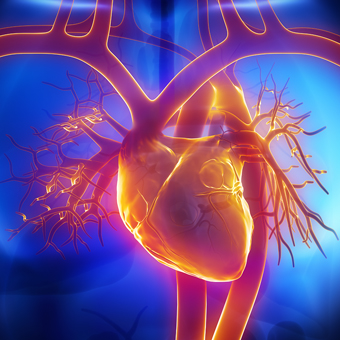
Assistant professor in bioengineering receives $1.5M research award
Mei has been awarded $1.5 million from the National Institutes of Health…
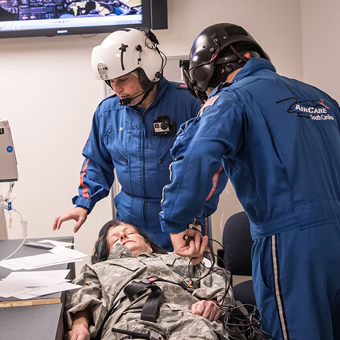
Researchers work to improve care and benefits for injured troops
Clemson University and Palmetto Health are partnering on a $1.6-million project funded by the Department of Defense…
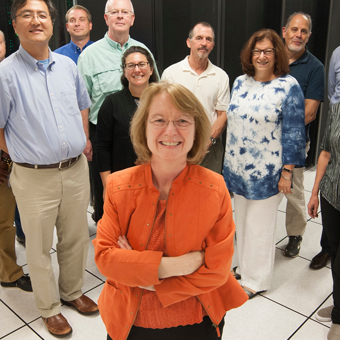
$14 MILLION
Dollar value of research that will be supported in an upgrade to Clemson University’s supercomputer, the Palmetto Cluster.
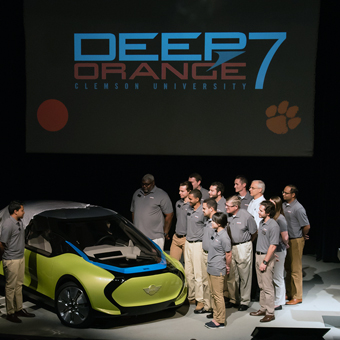
Students unveil Deep Orange 7 MINI concept vehicle for 2025 and beyond
Students at the Clemson University International Center for Automotive Research (CU-ICAR) unveiled their newest Deep Orange concept vehicle, sponsored by the BMW Group.
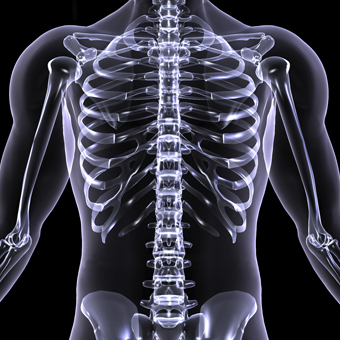
Clemson Bioengineering ranks 4th
Clemson University ranks 4th among the nation’s 50 best value schools for biomedical engineering, according to bestvalueschools.com.
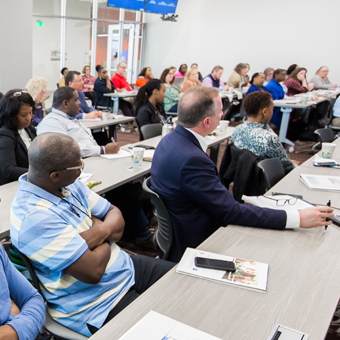
30
Number of education officials from across South Carolina who recently gathered in Greenville to begin collaborating on the most in-depth study ever undertaken…
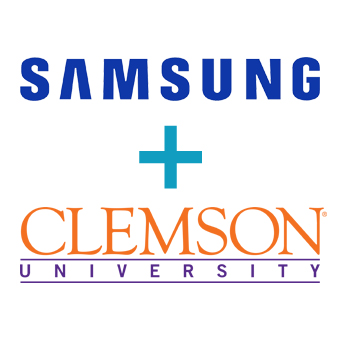
Samsung and Governor McMaster announce new R&D partnership with Clemson, USC
Samsung Electronics America announced in December a new research and development partnership with the state of South Carolina and its two largest universities, Clemson University and the University of South Carolina.
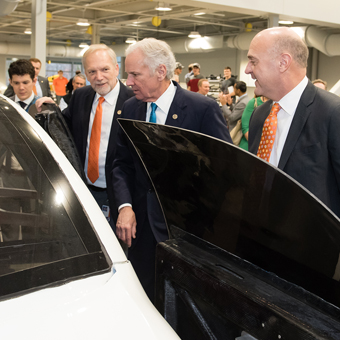
Clemson University strengthens commitment to South Carolina’s economic future with new Center for Advanced Manufacturing
Clemson University announced in December the creation of its Center for Advanced Manufacturing, which will become the centerpiece of the University’s ambitious commitment to education, research, innovation and workforce development…

Medical-imaging techniques could aid waste clean-up
Brian Powell, the Fjeld Professor in Nuclear Environmental Engineering and Science, is leading a team being recognized for pioneering the use of SPECT scans to examine how water and radionuclides move through soil.
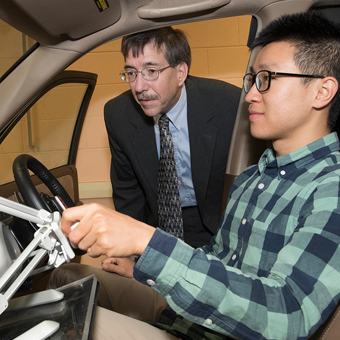
Professor named Fellow of SAE International
A mechanical engineering professor who worked for nearly a decade in the automotive industry before joining Clemson University, has been elected Fellow of SAE International.
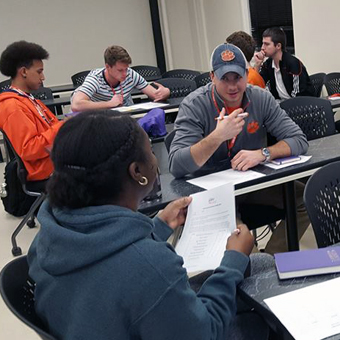
Learning to lead
More than 20 students gathered in Freeman Hall’s auditorium on Nov. 29 for LEAD Forward’s first commitment ceremony.…
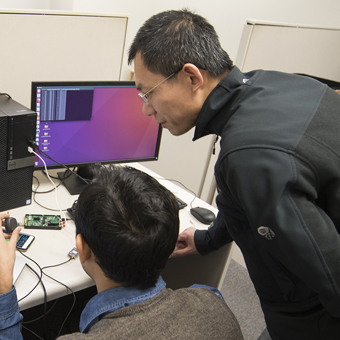
New defenses sought against cyberattacks
Yongqiang Wang, an assistant professor of electrical and computer engineering, is leading a team that is receiving $1 million from the National Science Foundation…
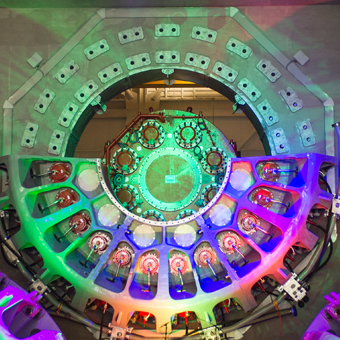
Clemson to test world’s most powerful wind turbine
MHI Vestas Offshore Wind and Clemson University announced that the world’s most powerful wind turbine (the V164-9.5 MW) will have all testing and verification of the wind turbine’s gearbox and main bearings carried out at the University’s state-of-the-art 15 MW test bench.
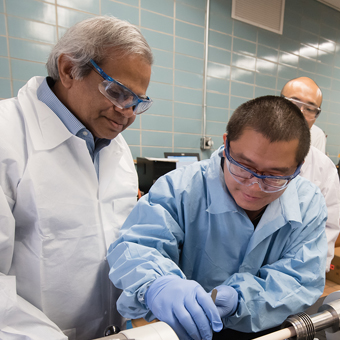
$20 million
Amount of funding that a group of South Carolina researchers, including Rajendra Bordia, is receiving to start a new advanced materials initiative, MADE in SC.…
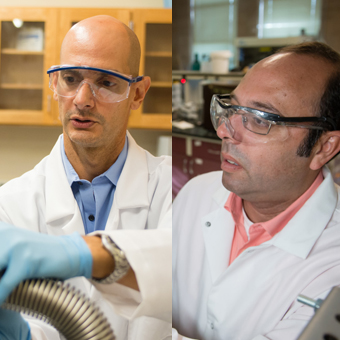
$3.9 million
Five-year funding tally to researchers in Clemson’s Department of Materials Science and Engineering from the Department of Energy’s Nuclear Energy University Research Program.
Faculty Spotlight
Oliver Myers (right), an associate professor of mechanical engineering, is receiving nearly $1 million from the U.S. Army Research Lab to develop “smart material” that senses damage, similar to how nerves tell the body it has been injured. It could be utilized in helicopters, tanks and other vehicles.
Aaron Gordon made the most of his time at Clemson University before graduating with a degree in civil engineering. He served seven months in Haiti as an engineering intern for Clemson Engineers for Developing Countries, an organization that helped provide clean water and sanitation to an area stricken by cholera. Watch his story at bit.ly/CleanWaterCEDC.



